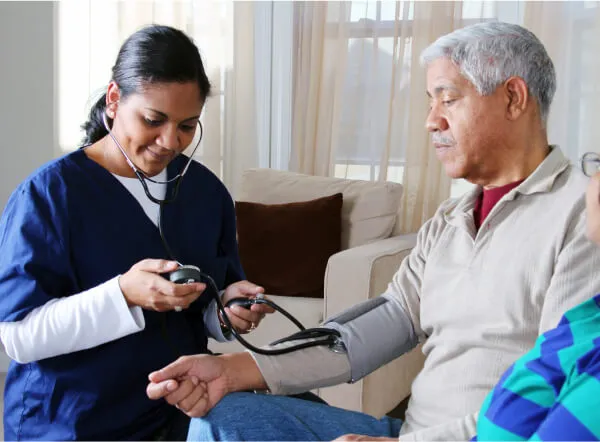Pharmacy

A career in pharmacy may involve preparing and dispensing lifesaving medications or researching and developing groundbreaking genomic drugs. Read on to learn more about degree and licensing requirements for pharmacists.
<h2 id="section---IsACareerInPharmacyForMe">Is a Career in Pharmacy for Me?</h2>
<h3 id="section---CareerOverview">Career Overview</h3>
<p>The study of pharmacy procedures and pharmaceuticals is a branch of science that deals with the preparation, dispensing and utilization of medicinal drugs. Increasingly, <a href="https://learn.org/articles/What_are_the_Job_Duties_of_a_Pharmacist.html">pharmacy professionals</a> do more than just fill prescriptions and dispense drugs. You might also work with doctors and nurses in hospital and clinical settings or in research and development in the biotechnology industry. As scientists learn more about the human genome, pharmaceutical professionals have become instrumental in developing therapeutic drug regimens and adapting them to an individual's genetic makeup.
</p>
<p>You'll need a doctoral degree to work as a pharmacist or pursue a related career in teaching and research. However, if your specifically interested in working in a pharmacy, and you don't wish to deal with the rigorous education demanded of a pharmacist, you may choose to become a <a href="https://learn.org/articles/Pharmacy_Technician_Become_a_Pharmacy_Technician_in_5_Steps.html">pharmacy technician</a>.
</p>
<h3 id="section---CareerOptions">Career Options</h3>
<p>According to the U.S. Bureau of Labor Statistics (BLS), more than half of all <a href="https://learn.org/articles/Pharmacist_Career_Definition_Occupational_Outlook_and_Education_Prerequisites.html">pharmacists</a> work in pharmaceutical retail settings. As a pharmacist, you might work on a research team developing drugs, overseeing formulations and batch testing for a pharmaceutical or biotechnology company (<i>www.bls.gov</i>).
</p>
<h3 id="section---EmploymentAndSalaryInformation">Employment and Salary Information</h3>
<p>According to the BLS, <a href="https://learn.org/articles/What_is_the_Employment_Outlook_for_Pharmacists.html">employment for pharmacists</a> was expected to increase by an average rate of 14% nationwide between 2012 and 2022. As of May 2013, pharmacists had a median annual income of $119,280. Nationwide, employment of pharmacy technicians was predicted to increase by 20%, or much faster than average, through 2022. In May 2013, the median annual wage for pharmacy technicians was $29,650 (<i>www.bls.gov</i>).
</p>
<h2 id="section---HowCanIWorkInPharmacy">How Can I Work in Pharmacy?</h2>
<h3 id="section---EducationalRequirements">Educational Requirements</h3>
<p>To work as a pharmacist, you need to complete a pre-pharmacy program and then earn a <a href="https://learn.org/articles/What_Type_of_Degree_Programs_are_Required_for_a_Pharmacist.html">Doctor of Pharmacy (Pharm.D.)</a> degree. Be sure you look for a Pharm.D. program accredited by the Accreditation Council for Pharmacy Education (ACPE). You can expect the program to be rigorous with courses in basic science, such as biochemistry and cell biology, as well as pharmacology and pharmaceutics.
</p>
<p>Classes in pharmacy and health care, which give an overview of health care systems, law, ethics and professional skills, are generally part of the curriculum. You also learn about the major disease phases and how these affect organ systems. Finally, clinical rotations are required for experiential learning.
</p>
<h3 id="section---RequiredSkillsAndKnowledge">Required Skills and Knowledge</h3>
<p>As a pharmacist, you're expected to make decisions that affect a patient's health and well-being. You must possess good judgment, attention to detail, excellent communication skills and high ethical standards. You also need to keep abreast of the continually expanding field of medications so that patients are receiving maximum results from their drug therapies.
</p>
<h3 id="section---Licensing">Licensing</h3>
<p>A satisfactory score on the North American Pharmacist Licensure Examination is required before you can work as a <a href="https://learn.org/articles/What_is_Required_to_Obtain_a_Pharmacist_License.html">licensed pharmacist</a>. In general, the exam will test your knowledge of pharmacy skills and procedures. Some states also require the Multistate Pharmacy Jurisprudence Examination (MPJE), which will evaluate your understanding of pharmacy law. All states require a specified amount of experience in a clinical setting, which can usually be earned concurrently with a Pharm.D. degree. Additional criteria might include a criminal background check.</p>


.svg)